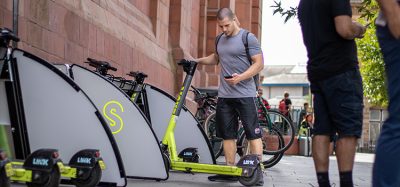FREENOW survey unveils urban mobility trends for 2024
- Like
- Digg
- Del
- Tumblr
- VKontakte
- Buffer
- Love This
- Odnoklassniki
- Meneame
- Blogger
- Amazon
- Yahoo Mail
- Gmail
- AOL
- Newsvine
- HackerNews
- Evernote
- MySpace
- Mail.ru
- Viadeo
- Line
- Comments
- Yummly
- SMS
- Viber
- Telegram
- Subscribe
- Skype
- Facebook Messenger
- Kakao
- LiveJournal
- Yammer
- Edgar
- Fintel
- Mix
- Instapaper
- Copy Link
Posted: 8 January 2024 | Intelligent Transport | No comments yet
FREENOW’s survey reveals a transformative shift in urban mobility, emphasising the rise of Mobility-as-a-Service, a strong belief in electric vehicles, openness to autonomous transport and a demand for smarter infrastructure.


According to a recent Kantar research survey commissioned by FREENOW, urban mobility is on the verge of a significant transformation, influenced by shifting preferences, technological advancements and a growing emphasis on sustainability. The survey, spanning over 4,000 respondents across Europe, sheds light on key trends shaping the future of city navigation.
As car ownership declines (-38%) in Europe, the concept of Mobility-as-a-Service (MaaS) gains traction. The survey reveals that 39% of UK respondents already use ride-hailing apps, and 69% believe mobility app usage will increase. FREENOW’s partnership with Karhoo integrates services into major apps, exemplifying the trend towards seamless urban navigation.
Furthermore, the survey reflects a strong belief in electric vehicles (EVs) as the future of urban mobility, with 75% of 18–29-year-olds envisioning EVs as such. However, 53% calling for stronger incentives cite a lack of EV charging infrastructure. FREENOW supports drivers with EV transition and offers zero-emission capable vehicles, with 40% of UK trips done using such vehicles.
In addition, 45% of British respondents express openness to autonomous vehicles, aligning with PWC’s projection of 40% of European mileage covered by autonomous vehicles by 2030. Moreover, one in five envision air taxis and flying vehicles in cities by 2033.
The Knowledge of London: How adapting the Knowledge can save the taxi industry
However, the survey also reveals that over one-quarter of UK respondents feel cities are not doing enough to encourage alternative transport modes. Public transport remains crucial, but 41% cite delays as a primary issue. Respondents predict increased use of shared micro-mobility, bikes, e-bikes, car-sharing and ride pooling.
The survey also highlights that the future of urban mobility lies in sustainability, technology integration and shared solutions. In line with this, FREENOW aims to provide innovative and sustainable mobility solutions, contributing to an efficient and environmentally conscious urban landscape.
Mariusz Zabrocki, UK General Manager at FREENOW, said: “Our survey results highlight the continuing impact of mobility apps on consumer travel habits. This data reveals people will be looking at apps to plan and book their trips, that is why we continue to expand our taxi and multi-mobility offer while allowing it to be easily combined with other transport modes in our app. It’s fantastic to witness strong support from young people for electric vehicles as the future of transportation.”
The survey, conducted in August to September 2023, covered large and medium-sized cities in Great Britain, Germany, Austria, Spain, Italy, Ireland, Poland and Greece.
Related topics
Micro-mobility, Mobility Services, Multimodality, Passenger Experience, Public Transport, Sustainable Urban Transport
Related modes
Bikes & Scooters, Ride-sharing & Car-sharing
Related organisations
FREENOW
Related people
Mariusz Zabrocki








